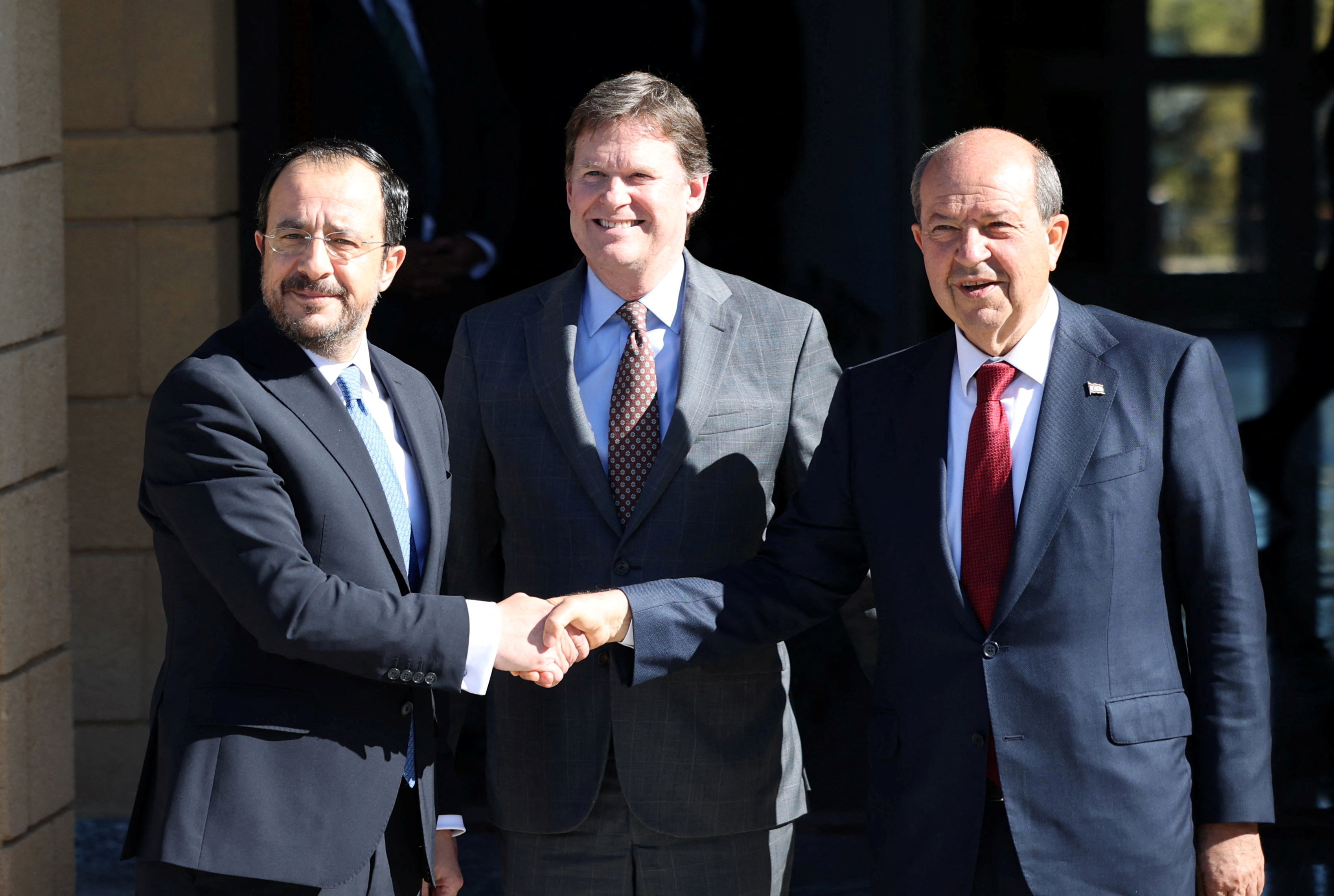The prospect of an informal, multi-party gathering in Geneva that would examine the possibility of a new peace process, which is anything but a certainty, appears to have worried some politicians.
One of them, Diko deputy Pavlos Mylonas, proposed for discussion at Thursday’s House plenum, “The efforts of the president of the Republic for a resumption of the talks for a settlement of the Cyprus problem and the dangers posed by the stance of Turkey for a settlement outside the framework of the United Nations.”
The debate lasted more than three hours, but received very little media coverage the following day, which probably reflected public apathy for what has been, for decades, a national obsession and reliable career path for ambitious politicians. Not any longer. People have given up any hope – or should we say desire – for a settlement and appear very comfortable with the status quo, despite President Christodoulides’ repeated warnings that it is unsustainable.
In his speech, Mylonas said the people were never given the power to decide their future and when they were asked, they answered clearly that they do not consent to this specific bizonal bicommunal federation in the form it was given to us in 2004. We should have had this discussion, he said, “not in order express our pain, but so that the Cyprus problem could be placed anew and in the right way at the centre of the news and we could think about it in view of the five-party meeting.”
Mylonas has a point in saying the people were never asked what type of settlement they wanted, but the blame for this belongs to the parties and their politicians, most of whom have, as a matter of policy, avoided talking honestly to the Greek Cypriots, for decades, serving them with empty slogans, wishful thinking, false promises and unattainable objectives. At the same time, they have been using scare tactics to demonise any realistic compromise, without offering any viable alternative apart from hollow rhetoric.
The 2004 referendum mentioned by Mylonas is a case in point. The Annan plan was presented as disastrous for the Greek Cypriots and its opponents promised we would be able to secure a much better settlement as members of the EU, which Cyprus would have joined a week after the referendum. Twenty-one years later the ‘European solution’ we had been promised remains a figment of the populists’ imagination, while in that time the occupied north has steadily turned into something resembling a province of Turkey, exemplified by the construction of mosques everywhere.
Although there are no accurate figures, reports from the north suggest the number of Turkish nationals living there might have quadrupled since 2004, turning Turkish Cypriots into a minority. During this time all big infrastructure works have been undertaken by Turkish capital which now has a stake in occupied are. Should we also mention the rampant development of Greek Cypriot land that would have been returned to its owners if there was a settlement 21 years ago?
After the last opportunity for a deal was spurned in 2017 by Nicos Anastasiades, who walked out of the talks, after expressing his support for a two-state solution to the Turkish foreign minister, the Turkish side have given up on the idea of bizonal bicommunal federation, and, worse still, decided to open the fenced area of Varosha that had remained out of bounds and empty since 1974. Apart from blaming Turkish intransigence for the collapse of the talks, Anastasiades also declared at the time that he did not want a settlement that would make the Republic a ‘Turkish protectorate,’ an oft-repeated argument nowadays.
This is a politically correct way of saying that a two-state solution is preferable to a federation/confederation, because the Cyprus Republic will remain intact, preserved as a Greek state in which Turkish Cypriots would have no say. Politically correct, because it avoids mentioning the fact that this means surrendering 40 per cent of Cyprus territory to Turkey. It would be a national betrayal to say such a thing, but this is precisely where the national aversion to a compromise has led us to.
Greek Cypriots are so averse to sharing power with the Turkish Cypriots they refuse to see the obvious long-term advantage of a federal/confederal settlement – the Turkish Cypriot constituent state, or whatever else it is called, would be a part of the EU. Is this not the best guarantee for a secure future? Would we not feel safer if the north was EU territory rather than a province of Turkey with a constantly growing Turkish population?
This is the choice facing the Greek Cypriots today. They have every right to choose partition, either through negotiations (perhaps securing the return of some territory) or as the default position of not engaging in any talks, but the cost of this – a border with Turkey which will turn the north into a province of Turkey – must be made clear to everyone. People must be made aware of the consequences of any decision, something politicians, conveniently, never talk about.






Click here to change your cookie preferences